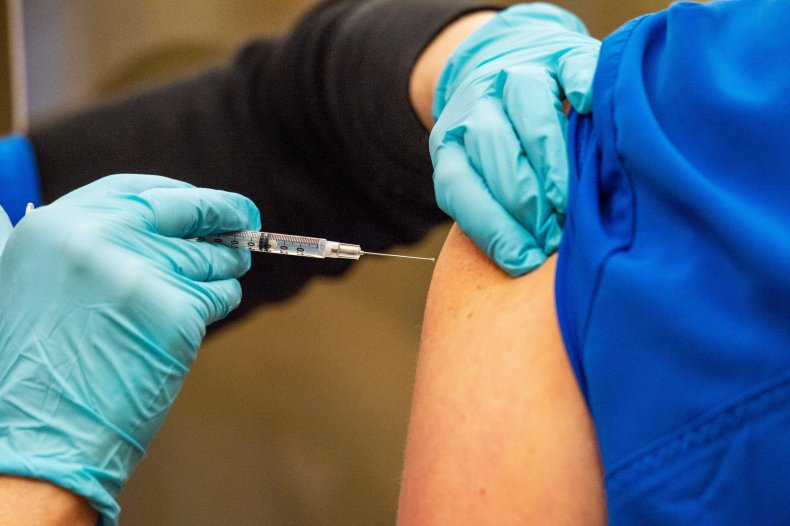From Delta to Lambda—Every COVID Variant in the U.S. Right Now
The U.S. is battling another surge of coronavirus infections as new variants enter the country and vaccine hesitancy continues in some communities.
Scientists and state authorities are racing to learn more about these variants—particularly the highly infectious Delta, which is now the most common strain in the U.S.
According to Centers for Disease Control and Prevention data for the two weeks to July 31, the Delta variant (B.1.617.2) and its sub-strains now make up 93.4 percent of cases in the United States.
Delta has spread rapidly since being reported in the U.S. for the first time in March. It was first detected in India last December and devastated that country in a fierce second wave.
The Alpha variant (B.1.1.7), first reported in the U.K last year, had previously been the dominant strain. In the latest CDC figures, it accounts for just 2.9 percent of U.S. cases.
Gamma (P.1) was first detected in travelers from Brazil on their arrival in Japan in January—and found its way to the U.S. the same month. It now makes up 1.3 percent of cases across America, with the highest number of infections in Florida.
The Gamma variant has a notable mutation, known as E484K, that could help the virus to dodge past the body's defense systems, according to the KwaZulu-Natal Research Innovation and Sequencing Platform in South Africa. This mutation has also been identified in the Beta variant but there are hardly any Beta cases in the U.S., according to the CDC.
Iota (B.1526) is a variant of interest—rather than a variant of concern, like Alpha, Beta, Delta and Gamma—and accounts for an estimated 2.5 percent of U.S. cases. Iota infections have primarily been reported in New York.
Another variant of interest is Lambda. Only about 1,000 U.S. cases have been detected, but it has caused havoc in South America after being first identified in Peru a year ago.
It is the dominant strain in Peru where there are 604 deaths per every 100,000 people. It has a fatality rate of 9.3 percent, according to Johns Hopkins University of Medicine.
Dr. Anthony Fauci, director of the National Institute of Allergy and Infectious Diseases and chief medical adviser to President Joe Biden, fears the situation could become worse as these COVID variants snake their way across the U.S.
Appearing on ABC's This Week on Sunday, Fauci said he did not think there would be a repeat of the winter crisis, but he pointed out that there was an outbreak among the 100 million Americans who had chosen not to get vaccinated.
He told host Jonathan Karl: "You know what we really need to do, Jon. We say it over and over again and it's the truth—we have 100 million people in this country who are eligible to be vaccinated who are not getting vaccinated. We are seeing an outbreak of the unvaccinated."
Some Americans are heeding these warnings, however, with vaccine uptake rocketing in some of the states worst hit by the Delta variant, according to NBC analysis. Florida recorded the largest increase over the four weeks to July 26—a massive rise of 4,552 percent.
Tennessee was in second place (up 413 percent), Louisiana third (up 403 percent) and Mississippi fourth (up 353 percent).
Newsweek has contacted the CDC for comment.


